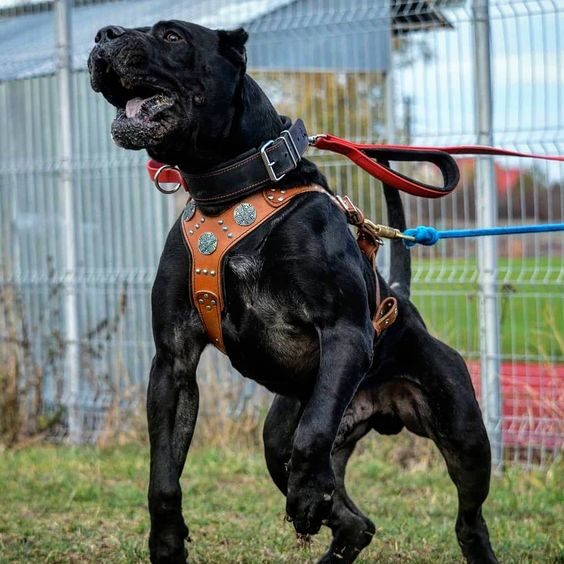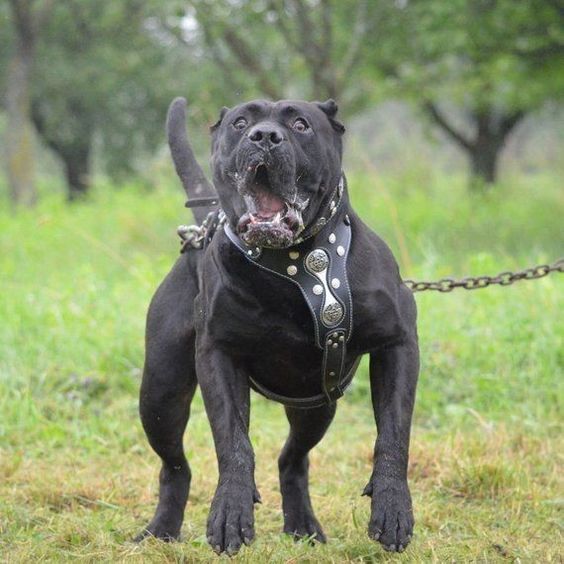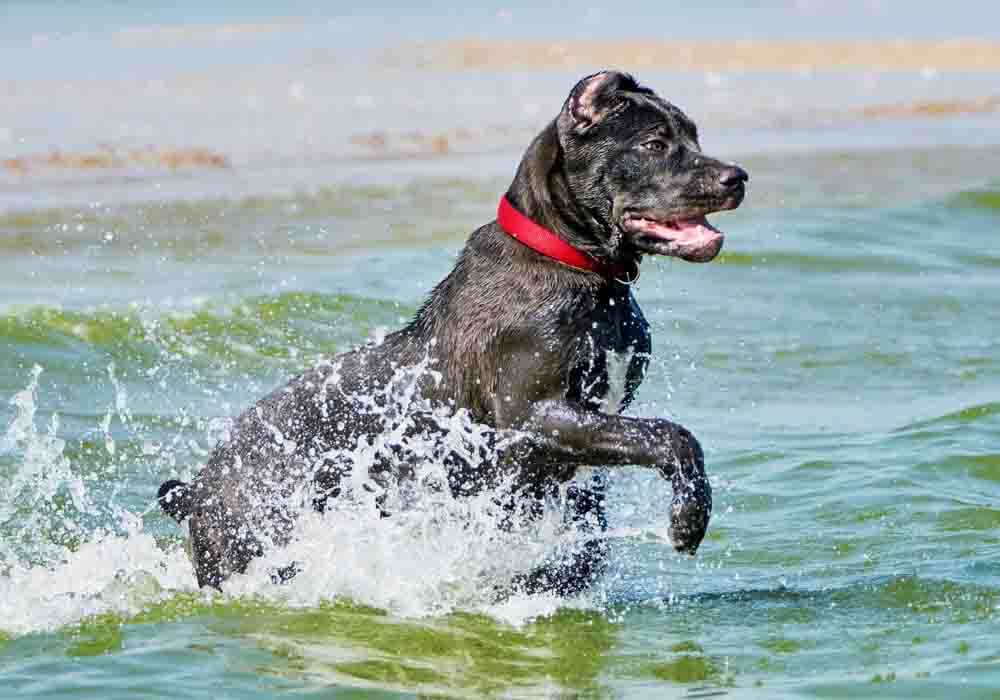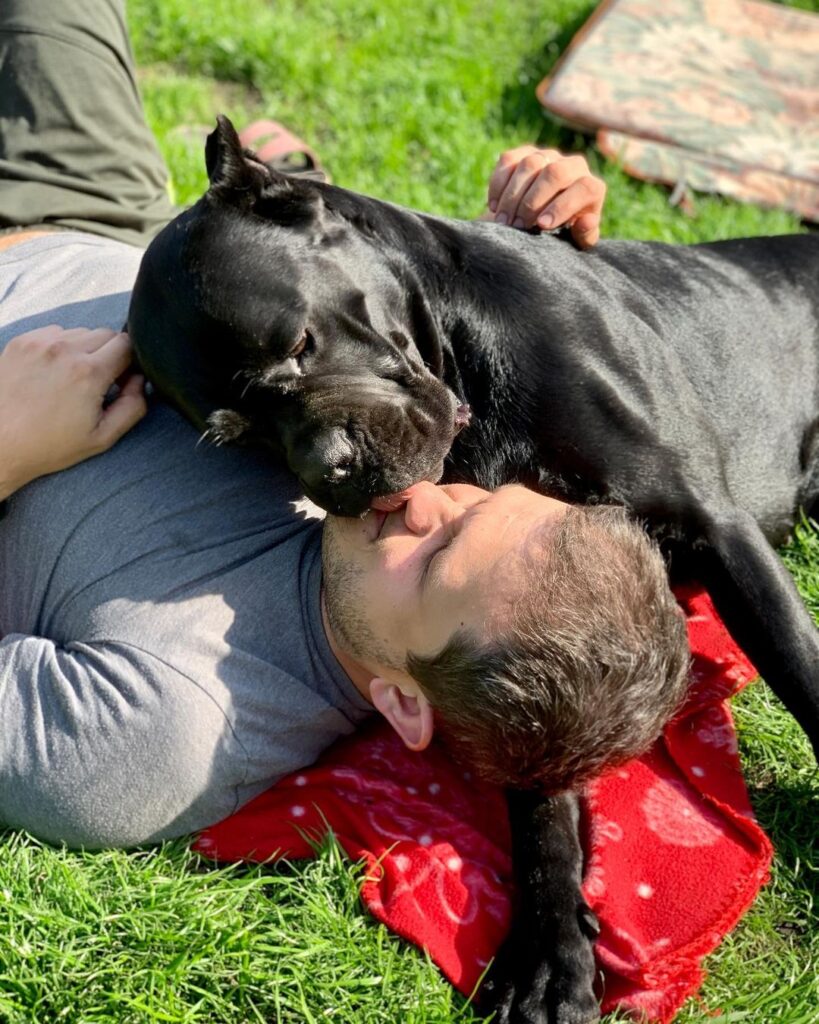
The idea of using service dogs to assist individuals with various disabilities and tasks has gained immense popularity over the years. Service dogs come in various breeds, each possessing unique traits that make them suitable for specific roles. One such breed is the Cane Corso, known for its strength, loyalty, and versatility. In this article, we will explore whether a Cane Corso can be a service dog, what qualities make them suitable, their training process, and considerations when choosing between male and female Cane Corsos for service work.
What makes a Cane Corso a good service dog?
Cane Corsos exhibit several qualities that make them potential candidates for service dog roles. These qualities include their protective nature, intelligence, and willingness to work closely with their handlers. Their large size and strength also play a role in assisting individuals with mobility challenges.
Loyalty and Bonding
Loyalty is a trait deeply embedded in the DNA of Cane Corsos, making them a prime candidate for service dog roles. These majestic dogs form intense and unbreakable bonds with their handlers, which is crucial for the success of any service partnership. The loyalty exhibited by Cane Corsos goes beyond mere companionship; it’s a dedication to their handler’s well-being that drives them to excel.
When a Cane Corso establishes a bond, it becomes a steadfast guardian, always attuned to the handler’s needs. This bond is forged through consistent interaction, training, and mutual trust. Their loyalty extends to unwavering vigilance, as they actively monitor their handler’s surroundings for potential hazards or distress. This level of devotion not only enhances their suitability as service dogs but also provides a source of emotional support for individuals in need.
Protective Instincts
The protective instincts of Cane Corsos are legendary. Rooted in their history as guardian dogs, these instincts have evolved to become a cornerstone of their personality. When harnessed appropriately through training, this protective nature can be a tremendous asset in a service dog.
Cane Corsos have an innate ability to assess situations and respond accordingly. They can detect changes in their handler’s behavior, even before visible signs of distress emerge. This vigilance translates into advanced warning for medical conditions such as seizures or sudden drops in blood sugar. With the right guidance, they learn to differentiate between real threats and everyday situations, ensuring that their protective behaviors are employed only when necessary.
Size and Strength Advantage
The imposing size and strength of the Cane Corso provide a natural advantage for specific service tasks. While their size might seem intimidating, it’s precisely this attribute that makes them invaluable for individuals with mobility challenges. Cane Corsos can be trained to provide physical support and stability, assisting their handlers in standing, walking, or even climbing stairs.
Their strength also comes into play during tasks that require manual assistance, such as pulling a wheelchair. However, it’s important to note that their strength is matched by their intelligence and willingness to obey commands. Through targeted training, Cane Corsos can learn to exert their power gently and under precise commands, ensuring the safety and comfort of their handlers at all times.
Cane Corso vs other dogs as a service dog
Comparing Cane Corsos to other breeds commonly used as service dogs provides insights into their suitability and advantages in different scenarios.
Temperament Contrasts
When considering Cane Corsos as service dogs in comparison to other breeds, their temperament stands out as a noteworthy point of contrast. While some service dog breeds are known for their gentle and amiable nature, Cane Corsos bring a distinct blend of characteristics to the table. Their temperament is characterized by a balance between their protective instincts and their loyalty to their handlers.
In contrast to breeds that are inherently sociable, Cane Corsos tend to be more reserved, often forming strong attachments to a select few individuals. This can work in their favor as service dogs, especially when the handler requires personalized attention and focused assistance. Their natural wariness of strangers can also enhance their effectiveness in tasks that involve alerting their handler to unfamiliar individuals or potential dangers.
Task Compatibility
Service dog roles encompass a wide range of tasks, from mobility assistance to medical alert. When it comes to task compatibility, Cane Corsos may excel in specific areas that align with their unique strengths. Their size and strength make them ideal candidates for tasks that involve physical support, such as helping a handler maintain balance or retrieving objects.
Due to their keen senses and protective instincts, Cane Corsos can be particularly adept at tasks related to medical alerts. They have the ability to detect changes in their handler’s condition, such as heart rate irregularities or impending seizures. This compatibility with tasks that require vigilance and quick response adds to their potential as service dogs.
Public Perception and Acceptance
The perception of service dogs by the public and their acceptance in various settings can significantly impact their effectiveness. In the case of Cane Corsos, their imposing size and protective demeanor can evoke a range of reactions from strangers. It’s essential to address this aspect when considering them as service dogs.
Public perception can work in favor of Cane Corsos in certain scenarios. Their appearance alone can act as a deterrent, preventing unwarranted interactions and ensuring the handler’s personal space is respected. However, their strong presence can also raise concerns among those unfamiliar with the breed. To mitigate potential issues, thorough socialization and public education are crucial. Properly trained Cane Corsos can exhibit impeccable behavior in public spaces, helping dispel any misconceptions and fostering a positive image of service dogs in general.
Training for Cane Corso to become a good service dog
Effective training is crucial for any service dog. Cane Corsos require specific training methods tailored to their characteristics to ensure they perform their duties reliably.
Obedience Training
Obedience training forms the foundation for any successful service dog, and Cane Corsos are no exception. Despite their innate loyalty and intelligence, these dogs require structured training to refine their behavior and responses to commands. Obedience training instills discipline, ensuring that they can perform tasks reliably and safely.
Cane Corsos possess a strong desire to please their handlers, which can be harnessed through positive reinforcement techniques. Teaching basic commands like “sit,” “stay,” and “heel” establishes clear communication between the dog and the handler. Consistency is key; regular training sessions foster a deep understanding of expectations. It’s important to note that their size and strength demand even greater control, making obedience training not just a matter of convenience, but of safety for both the handler and those around them.
Socialization Techniques
Socialization is a critical aspect of training Cane Corsos as service dogs. Their protective instincts and reserved nature can lead to wariness of new environments, people, and animals. Early and ongoing socialization exposes them to various situations, preventing fear-based reactions and ensuring they remain composed in diverse settings.
Exposing Cane Corsos to different sounds, sights, and people from a young age helps them develop a confident and adaptable demeanor. Controlled interactions with other dogs and animals teach them appropriate behavior, preventing aggressive tendencies. Public spaces can pose challenges, so gradual exposure to crowded areas, public transportation, and various sensory experiences is essential. Through positive experiences and reinforcement, Cane Corsos learn to navigate the world around them with poise.
Task-specific Training Approaches
Training Cane Corsos for specific service tasks requires a tailored approach that capitalizes on their unique strengths. Task-specific training builds upon their inherent abilities and instincts to create a well-rounded service dog capable of meeting their handler’s needs.
For tasks such as mobility assistance, training involves teaching the dog to provide support during walking, standing, and sitting. This requires focus on balance, coordination, and following commands with precision. In the case of medical alerts, Cane Corsos can be trained to respond to specific scents or changes in the handler’s physiological state. These tasks demand a combination of scent detection training and reinforcement techniques to ensure accurate alerts.
Best service dog breeds
| Breed | Key Qualities and Suitability |
|---|---|
| Labrador Retriever | Friendly, adaptable, and highly trainable. Excellent for mobility assistance and retrieving objects. |
| Golden Retriever | Intelligent, gentle, and patient. Well-suited for therapy and emotional support roles. |
| German Shepherd | Intelligent, versatile, and protective. Ideal for tasks involving security, alerting, and guiding. |
| Poodle | Highly intelligent and hypoallergenic coat options. Great for individuals with allergies. |
| Border Collie | Energetic, agile, and quick learners. Well-suited for tasks that require precision and problem-solving. |
| Pomeranian | Small size and portable for certain tasks. Suitable for emotional support roles and alerting to alarms. |
| Cane Corso | Strong, loyal, and protective. Effective for mobility assistance and tasks requiring strength. |
| Boxer | Energetic, friendly, and strong. Can excel in tasks requiring physical support and companionship. |
| Miniature Schnauzer | Alert, intelligent, and adaptable. Good for tasks involving alerting and companionship. |
| Bernese Mountain Dog | Gentle, patient, and strong. Well-suited for mobility assistance and providing comfort. |
Male vs female: Which one is the great service dog?
Choosing between a male and female Cane Corso involves considering factors such as temperament, size, and compatibility with the handler’s needs.
Male Cane Corso Traits
Male Cane Corsos exhibit distinct traits that can influence their suitability as service dogs. These traits often stem from their genetic makeup and hormonal differences. Males tend to be larger in size, which can be advantageous for tasks requiring physical strength, such as mobility assistance. Their increased muscle mass and stature make them well-equipped to provide stability and support to handlers with mobility challenges.
While individual personalities vary, male Cane Corsos can also display a protective nature, which might translate into a heightened ability to alert handlers to potential dangers or medical issues. Their natural inclination towards vigilance can be harnessed through targeted training to enhance their effectiveness in service roles.
Female Cane Corso Traits
Female Cane Corsos, on the other hand, offer their own set of distinctive traits that make them viable candidates for service work. Generally slightly smaller than their male counterparts, females can be more maneuverable in certain scenarios. This agility can be advantageous for tasks that require navigating tight spaces or providing assistance in crowded environments.
Female Cane Corsos are known for their maternal instincts and nurturing nature. This quality can be particularly valuable in service roles that involve providing emotional support. They might exhibit heightened empathy and a keen sense of the handler’s emotional state, offering comfort when needed.
Selecting Based on Specific Requirements

The decision to choose a male or female Cane Corso as a service dog should ultimately hinge on the specific requirements of the handler and the tasks they need assistance with. Both genders have their own strengths that can be leveraged to meet different needs.
When selecting a Cane Corso for service work, it’s crucial to assess individual temperament, trainability, and physical attributes. Handlers who require more physical support might find a male Cane Corso better suited to their needs. Conversely, those seeking emotional comfort and a close bond might lean towards a female.
Personal preferences, the handler’s living situation, and the dog’s compatibility with other animals are also important factors. It’s important to work closely with experienced trainers and professionals who can evaluate both the dog and the handler’s requirements to make an informed decision.
FAQs
1. Are Cane Corsos suitable for service work?
Yes, Cane Corsos can excel in service roles due to their loyalty, intelligence, and strength.
2. What tasks can a Cane Corso assist with?
They can help with mobility support, alerting to medical conditions, and providing emotional comfort.
3. Do Cane Corsos get along with other service animals?
Proper socialization and training can help Cane Corsos interact positively with other animals.
4. Can their protective nature be a problem in public spaces?
With appropriate training, Cane Corsos can learn to differentiate between protective behaviors and appropriate behavior in public settings.
5. Are there any breed-specific laws or regulations to be aware of?
Regulations vary by location, so it’s important to research local laws regarding service animals and specific breeds.
6. How long does it take to train a Cane Corso as a service dog?
Training duration depends on factors such as the dog’s age, prior training, and the complexity of tasks.
7. Are Cane Corsos good for individuals with limited mobility?
Yes, their size and strength make them well-suited for providing support and stability.
8. Do male or female Cane Corsos learn tasks differently?
Each dog is unique, but both genders can be trained effectively with proper techniques.
9. Can I adopt a Cane Corso from a shelter for service work?
It’s possible, but thorough evaluation of the dog’s temperament and health is crucial.
10. How do I start the process of training a Cane Corso as my service dog?
Begin by consulting with a professional dog trainer experienced in service dog training to create a tailored plan.
Conclusion
In the world of service dogs, the choice of breed plays a crucial role in determining the success and effectiveness of their roles. As highlighted in the comparison table, various breeds bring unique qualities and suitability to the table, catering to a diverse range of needs. From the friendly and trainable Labrador Retriever to the protective and intelligent German Shepherd, each breed offers a distinct set of attributes that can greatly enhance the lives of individuals requiring assistance.
With over 4 years of devoted companionship with my beloved Labrador Retriever, Robin, I have cultivated a deep understanding and expertise in all things canine. From training and behavior to health and well-being.



